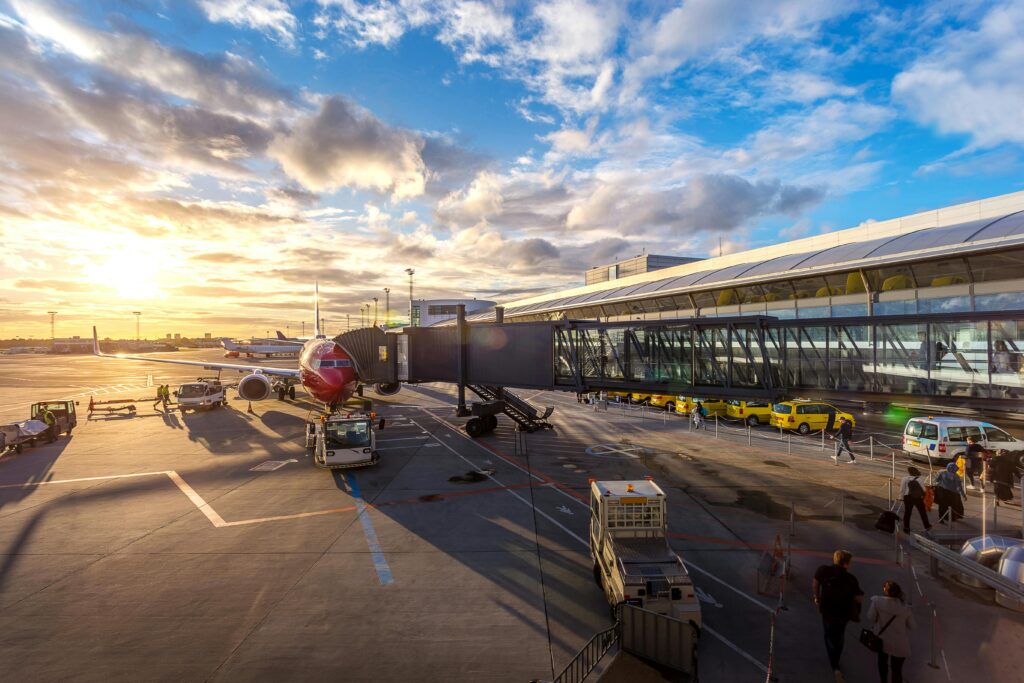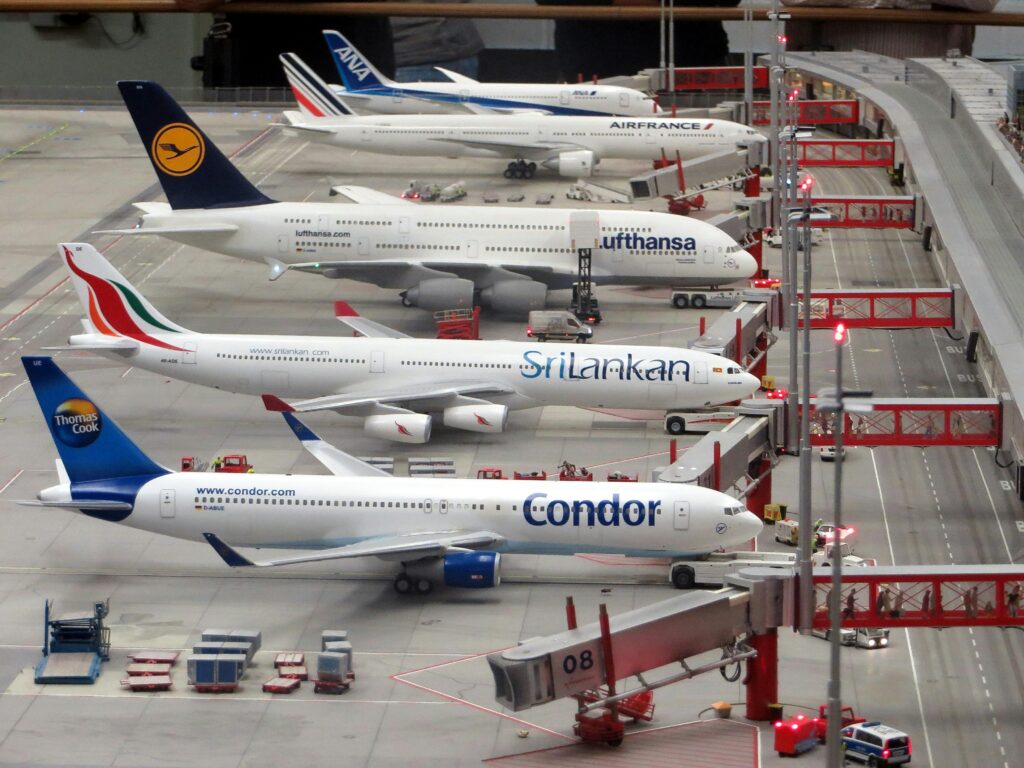Missing a connecting flight can turn any journey into a headache, leaving you scrambling for solutions and wondering about your options. But don’t worry—missing a connection doesn’t have to ruin your entire trip. With a little preparation and the right information, you can navigate the situation calmly and get back on track. In this guide, we’ll show you exactly what to do if you miss a connecting flight, from understanding your airline’s policies to finding alternative routes and even getting compensated if you’re entitled to it.
What Happens if You Miss a Connecting Flight?

If you miss a connecting flight, several scenarios can unfold depending on the airline, your ticket type, and the circumstances:
- Rebooking: Airlines often rebook passengers on the next available flight to their destination, particularly if they missed a connection due to a delay on their first flight.
- Assistance: Some airlines offer accommodations for long layovers, including hotel stays, meal vouchers, and transportation between the airport and hotel.
- Costs: If you miss a connection due to factors beyond your control, such as late arrival, security line delays, or personal layover issues, you may be responsible for new ticket or change fees.
- Baggage handling: If your luggage is checked through to your final destination, it should continue its journey if you miss your connection, so confirm with the airline and report to the baggage service counter.
- Airline policies: Airlines have unique rules for missed connections, so it’s crucial to understand these policies before traveling and contact the airline immediately if you notice a missed connection.
If you do miss a connection, contact the airline’s customer service or visit their help desk at the airport as soon as possible to explore your options and get assistance.
What to Do If You Miss Your Connecting Flight?
Contact Customer Service ASAP
If you missed a connecting flight due to a delay, it is important to contact airline officials immediately. They can help resolve the issue at the customer service desk or gate representative. If the issue is related to the airline, other passengers may face similar problems. Timely action improves travel outcomes. Key tips include being quick, finding the airline information desk or gate agent, being polite, asking about rebooking provisions, and discussing compensation or assistance if the airline’s fault was the issue. Aggressive behavior can lead to an unproductive situation, causing delays and missed connections.
Pro Traveler’s Tip: If the airline caused your missed connection, don’t accept the first offer—politely ask if there’s a better route or an upgrade available.
Contact Connecting Airlines
To manage multiple airline schedules, inform each airline about transferring you to another flight and share your schedule. Delays can spread downstream, so pay attention to the airline you are connecting with on the next flight. Organize your travel to the terminal, boarding, journey, and getting off at the final destination terminal. Flexibility may be accentuated due to within-sector control factors, but airline companies can help find satisfactory solutions. Document all communications and maintain records of changes to alleviate stress and disruption.
Figure Out if You Are Entitled to Compensation
Compensation for missed connecting flights can be granted under specific circumstances, primarily due to the airline’s fault, typically due to a previous flight delay. For instance, EU Regulation 261/2004 (commonly known as EU261), allows EU-based airline passengers up to €600 compensation for flight disruptions, including missed connections, based on flight distance and delay duration, with eligibility determined by specific time frames; The delay for short-haul flights up to 1,500 km is at least 3 hours, medium-haul flights (1,500 to 3,500 km) at least 3 hours, and long-haul flights over 3,500 km at least 4 hours.
To claim compensation, contact the airline directly, be aware of specialized fees, and check the airline’s policies and regulations, as they may vary depending on departure and arrival locations.
✅ Missed Your Connecting Flight? Do This First:
🔹 Go to the airline’s customer service desk – The sooner you act, the better your rebooking options.
🔹 Check for alternative flights – Use the airline’s app or website to view rebooking options.
🔹 Know your rights – If the airline caused the delay, they must rebook you for free and may owe you compensation.
🔹 Keep your documents – Boarding passes, delay notifications, and receipts for expenses may be needed for reimbursement.
🔹 Ask for food & hotel vouchers – If the delay is long, the airline may be responsible for your accommodation.
Check for New Flights
If you miss a connecting flight, checking for new flight options should be your priority. Here’s what you can do:
- Airlines now provide real-time flight updates and rebooking options through their mobile apps, eliminating the need to wait in line at customer service desks.
- If you don’t have the airline’s app, visit their website for online rebooking tools.
- Some airlines offer self-service kiosks at airports where passengers can view and select new flight options.
- Directly speaking with an airline representative, either at the airport’s customer service desk or by calling their number, can be more helpful in complex situations.
- Explore various routes to reach your destination faster, even if it involves additional stops.
Keep in mind that your chances of discovering a good substitute flight are better the earlier you begin searching for new possibilities.
Be Flexible With Alternatives

Rather than sticking to a specific flight number with a certain airline, consider, for example, trying a connection or looking at different airlines’ schedules and connection options. Nearby airports can also have advantages, including getting there in a few hours by driving to the other airport. If you make your strategy more flexible, you can find that there can be easier ways to get to the final position, turning a long road into an easy ride. For first-time travelers, this flexibility and preparation are key—take a look at these 15 tips on flying for the first time to help ensure a smoother journey.
Keep the Documentation
To successfully handle traveling problems, a person should keep all the documents like boarding passes, expense receipts, and letters with the airline staff in order. Thus, through intricately maintaining this evidence, travelers can manage various procedures and fight for their rights and benefits. This practice can relieve the stress of having unplanned events affecting persons while traveling and guarantee that passengers have adequate protection to fight their corners.
What To Do When You Miss the Last Connecting Flight on a Multi-Ticket Journey?
If you miss the last connecting flight on a multi-ticket journey, you should understand that the responsibility lies with you to buy another ticket to replace the one you missed, and at your own expense. Since your tickets are on different confirmation numbers, it becomes your fault not the airlines. That’s why it’s imperative that you minimize the risk of missing such flights. Anyway, it is important to understand your rights and obligations, so read the carrier’s contract of carriage carefully. The DOT displays amenities and compensation offered by major US airlines for flight delays. To handle missed connections, passengers should learn their airline’s policies, keep emergency contacts and policy details handy, and respond promptly and politely when asking for help.
How To Get Money Back for a Missed Connection
Flight cancellations or missed connecting flights can trigger a complicated reimbursement scenario for passengers. While airlines must offer amenities like meal vouchers, hotel accommodations, and transport vouchers, these aren’t always automatically dispensed. In the event of multiple delays, travelers should keep meticulous records of their costs to track receipts and submit them for reimbursement. How one can apply for that reimbursement varies depending on the airline and circumstances, but chat services or feedback forms also work if email-related correspondence is unavailable. Hint: It takes time and preservation in general.
Conclusion
Missing a connecting flight can be a stressful experience for travelers. However, knowing what to do if you miss a connecting flight can help resolve the situation calmly and efficiently. Stay informed about airline policies, leave plenty of buffer time between flights, and keep a positive attitude when working with the airline to find a resolution. Understanding your rights is key—especially if you miss a connection due to an airline delay. Similar to denied boarding, you may be entitled to compensation under regulations like EU261, which can provide up to €600, depending on the circumstances. By staying calm and informed, you can minimize the disruption to your travel plans and get back on track to your final destination.
FAQ
The airline must provide the next flight without additional charges if the airline is responsible for the delay and compensation or reimbursement may also be provided.
In general, planes do not wait for individual passengers, even if you have a connected flight. There are exceptions, but it is best to assume your flight will take off as scheduled.
Airlines normally consider a no-show if a connection is intentionally missed. The complete trip would be canceled, and a new ticket would need to be purchased at the passenger’s expense.
Business travelers must adhere to the same regulations as others, including EC261 protections. If a connection is missed during a business trip, keep all necessary documentation and contact your company’s travel department or travel agency for help to see if any compensation can be claimed.
